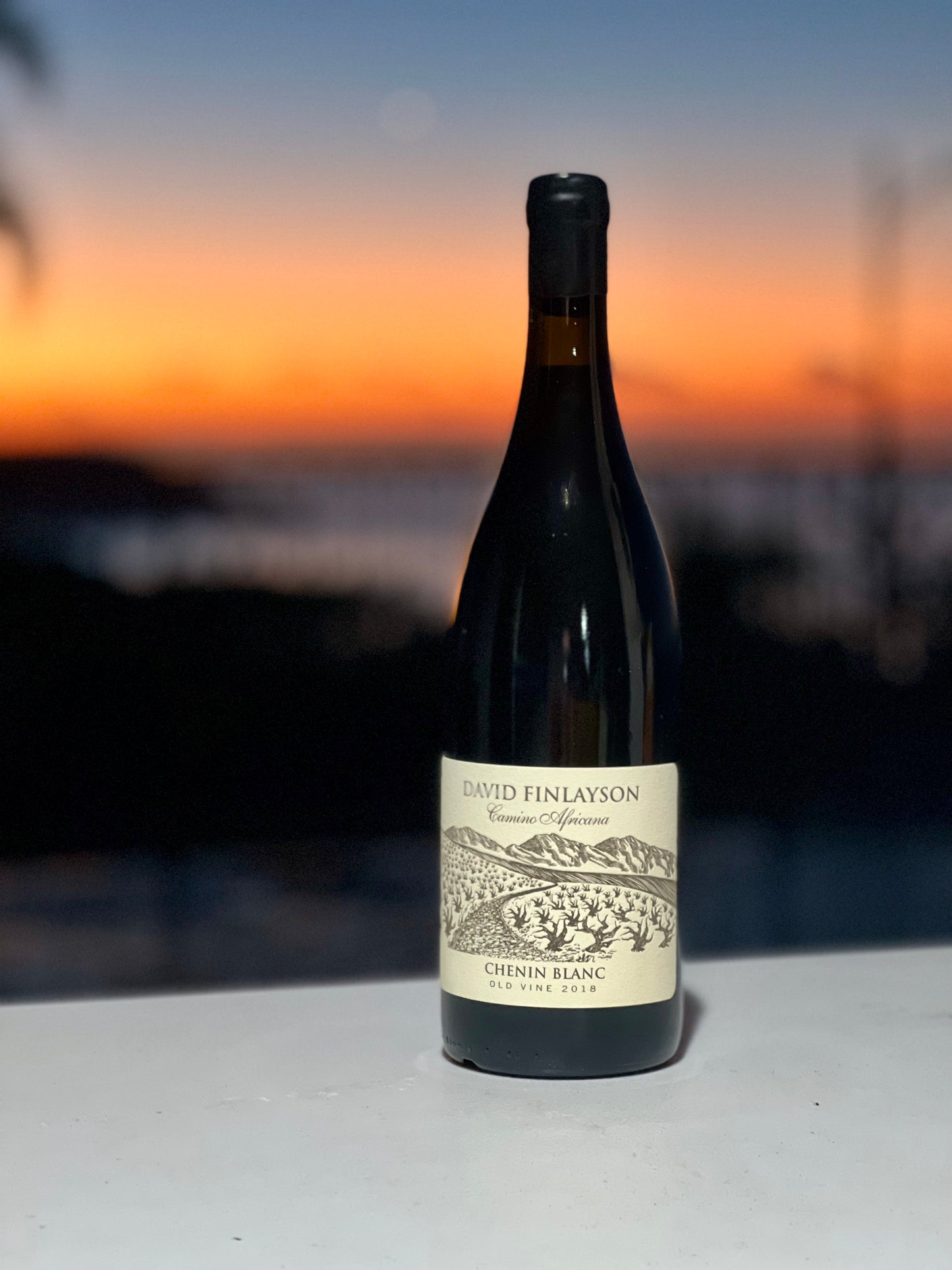The Sommelier's Box
David Finlayson, ‘Camino Africana’ Chenin Blanc 2018
- Regular price
- $32.00 USD
- Regular price
-
- Sale price
- $32.00 USD
- Unit price
- per
Couldn't load pickup availability
Region: Stellenbosch, South Africa
Varietal: 100% Chenin Blanc
Tasting notes: This shows slight oxidative notes, with hints of paraffin and marzipan that quickly dissipate, while spice and floral details frame the core of yellow apple and melon flavors. Vibrant acidity takes over, bringing focus and precision, while sea salt accents mark the long, mouthwatering finish.
Producer: The Finlayson family is synonymous with the modern era winemaking in the Western Cape region of South Africa. Three generations of Finlayson’s have played a shaping role in steering the Cape wine industry in the direction of the international wine world. Current leading Cape winemaker, David Finlayson, was born into a winemaking family with his grandfather Dr. Maurice Finlayson, a well-known pathologist originally from Inverness in Scotland started the family wine business at Hartenberg farm in Koelenhof, Stellenbosch. With South Africa having more planted acres of Chenin Blanc than the rest of the world combined, it stands to reason that some winemakers would want to make some cool renditions of the much maligned grape. Previously most of the Chenin in South Africa was used to make brandy, but with the drinking habits of millennials shifting more toward wine, some of the older, lower yielding vineyard sites are up for grabs, creating new ‘garagiste like’ opportunity for this grape. As a recent runner up in South Africa’s Winemaker of the Year awards, and the successful building and selling of well known Glen Carlou winery to Donald Hess, David Finlayson is not without some formidable talents, which he brings to bear on this project.
Vineyard and Winemaking: All grapes were hand-picked from two gnarly bush-vine vineyards, planted in back in the 1960’s. The beauty of old vines is that they have deep root systems and hardly seem to be affected by the previous 4 year drought. Grapes were whole bunch pressed and then fermented with wild yeast in older French oak barrels. Lightly sulphured after primary fermentation to prevent MLF, followed by 12 months maturation on the lees. The wine has an unmistakable minerality and the salty, umami flavor on the palate that can only be found when vines have struggled for decades to make their mark in the soil.
Share




